Choosing the best keyword search tool for SEO can be a time consuming process. In order to choose the best keyword research SEO tool you need to evaluate a few things such as ease of use, price and the ability to export the data. There are many different things to take into consideration when choosing the best tool. It can be tricky to figure out without doing some extensive research first. This is why we have put together this easy to follow guide which will allow you to quickly figure out which keyword search software is right for you.
Google Keyword Planner is always the first choice of most SEOs, marketers and bloggers. But it has a lot of limitations and errors which can be improved by using other keyword research tools. I will discuss the different keyword research tools that can be used as an alternative to Google Keyword Tool.
Wordstream has changed a lot since it was launched and has become a sort of ‘all-in-one’ package! It’s still officially called Wordstream but it covers three different areas: Keyword research, PPC management and website optimization. There are some important differences when it comes to the keyword tools but let’s first examine how each of them work.
Best Keyword Research Tool For seo
Semrush works a little differently than the other tools I will show you.
Instead of entering a seed keyword and getting a long list of keyword ideas, Semrush shows you keywords that your competition already ranks for.
(These are usually outside-the-box keywords that would be impossible to find using any other tool.)
Here’s how it works:
First, enter a competitor’s domain name in the field at the top of the page.

If you’re doing SEO in a country outside of the US (for example, in Google.co.uk), you can choose to see information about that specific market. Just choose that country from this menu:
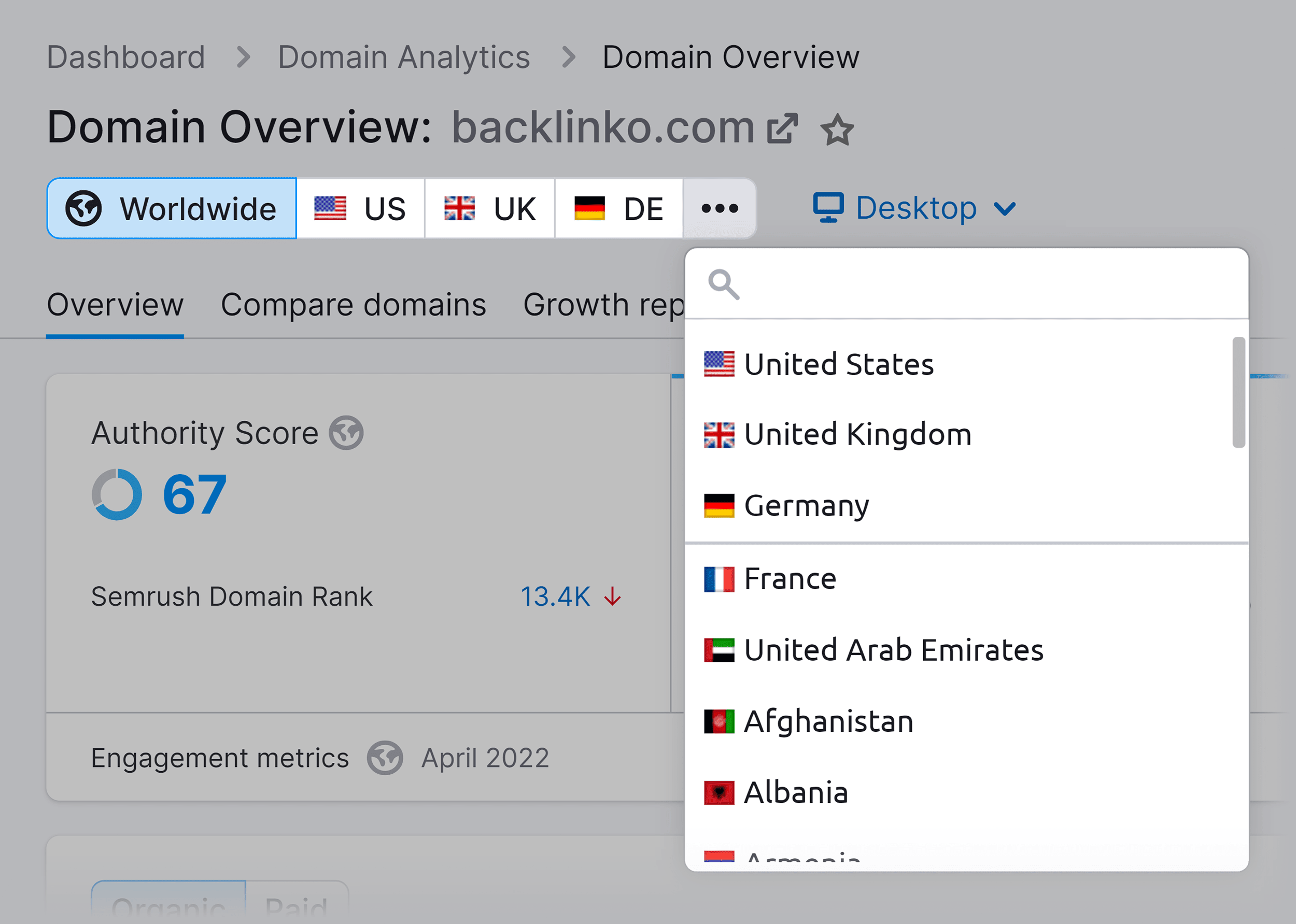
Next, take a look at the “Organic Research” section:
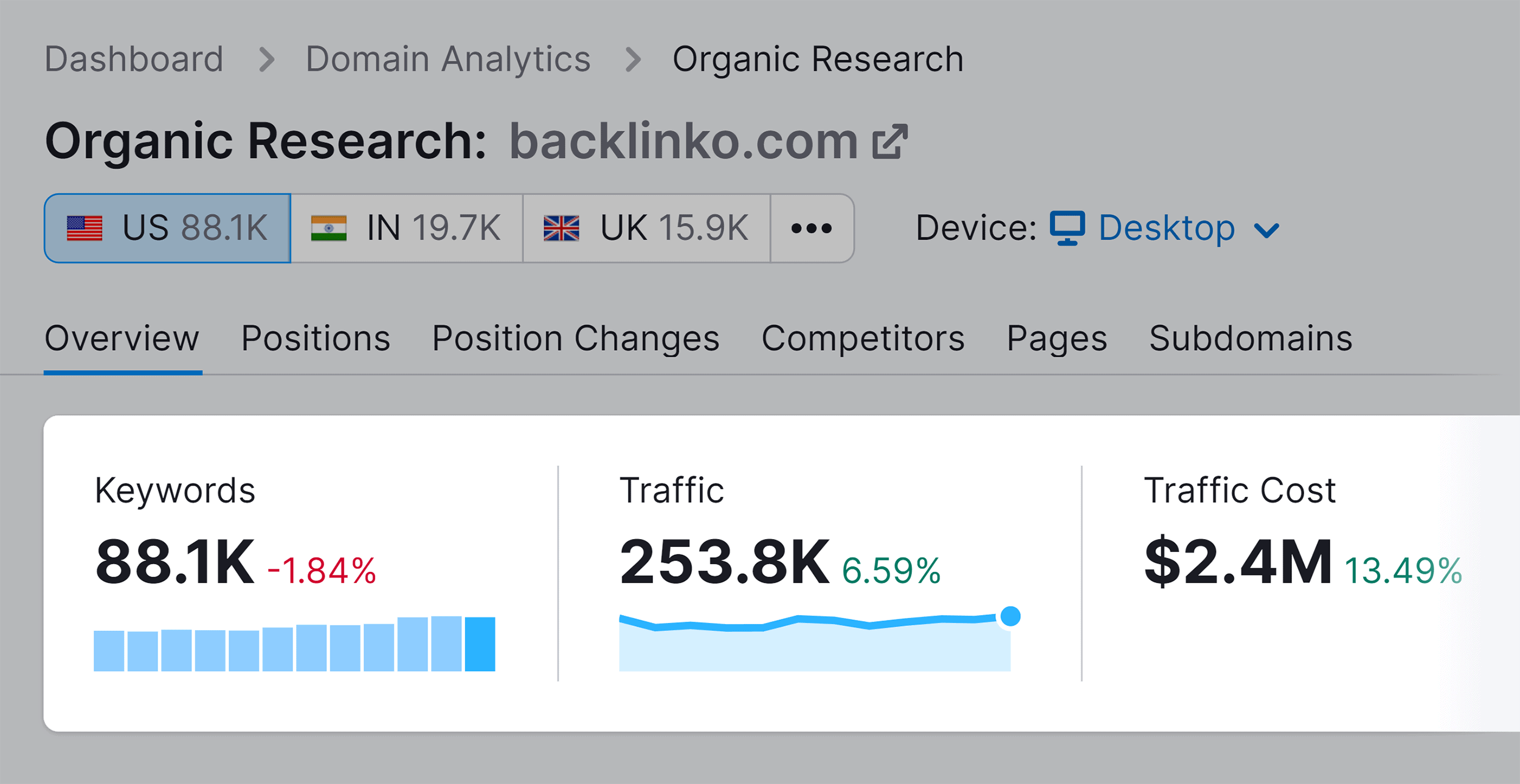
Here’s what the different terms in that section mean:
- Keywords is the estimated number of monthly organic visitors that come from Google.
- Traffic is the estimated number of monthly visitors.
- Traffic Cost indicates how valuable this traffic is (based on Google Ads CPC).
So if you see a domain with a lot of Organic Search Traffic but a low Traffic Cost, you know that they’re ranking for keywords that don’t convert into buyers.
But the real value of Semrush comes from the “Organic Keywords” data:
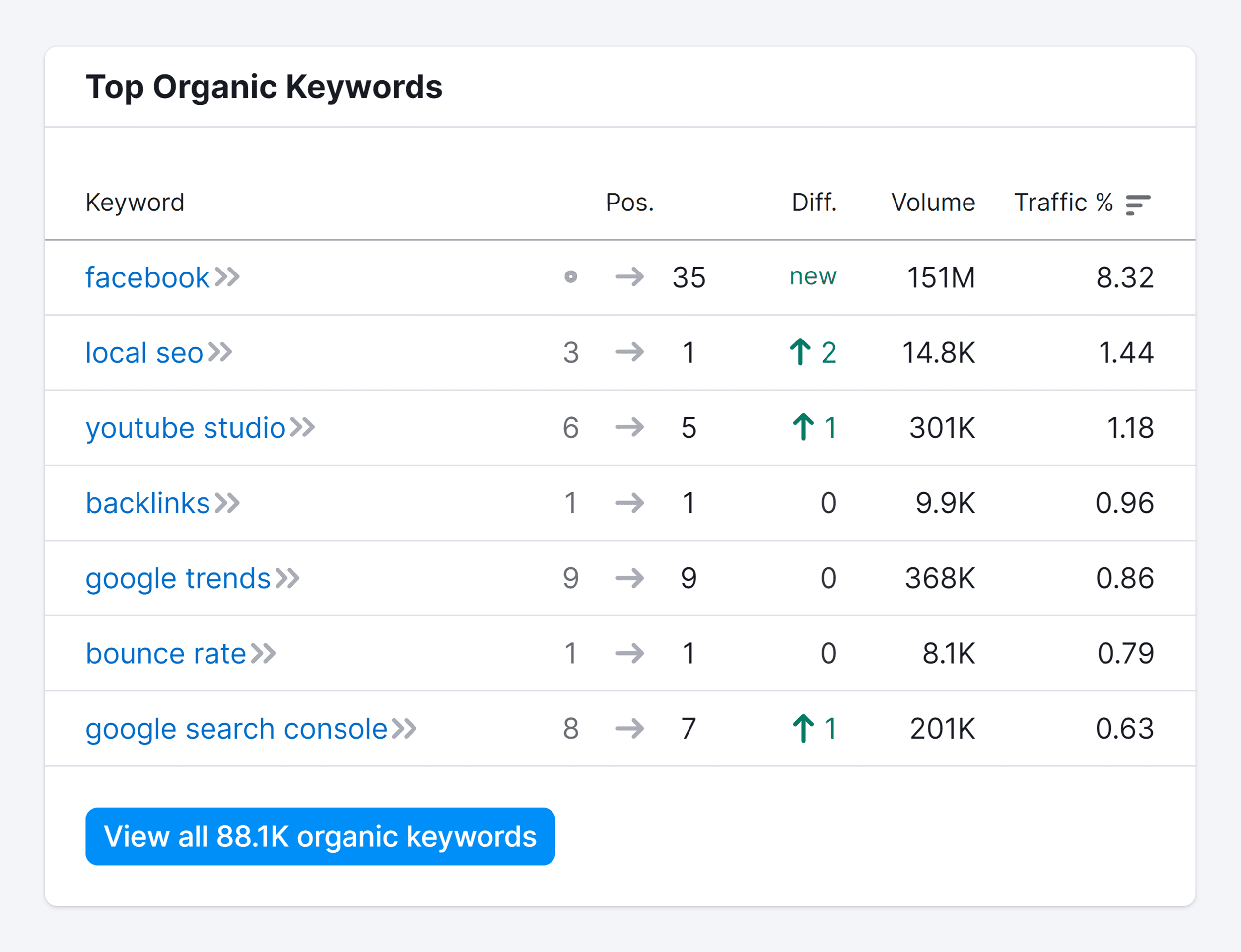
This box will show you 5 of the top keywords that your competitors are ranking for. To see more, click on “View all [number] organic keywords”.
And you’ll get a list of all of the keywords that the site or URL ranks for:
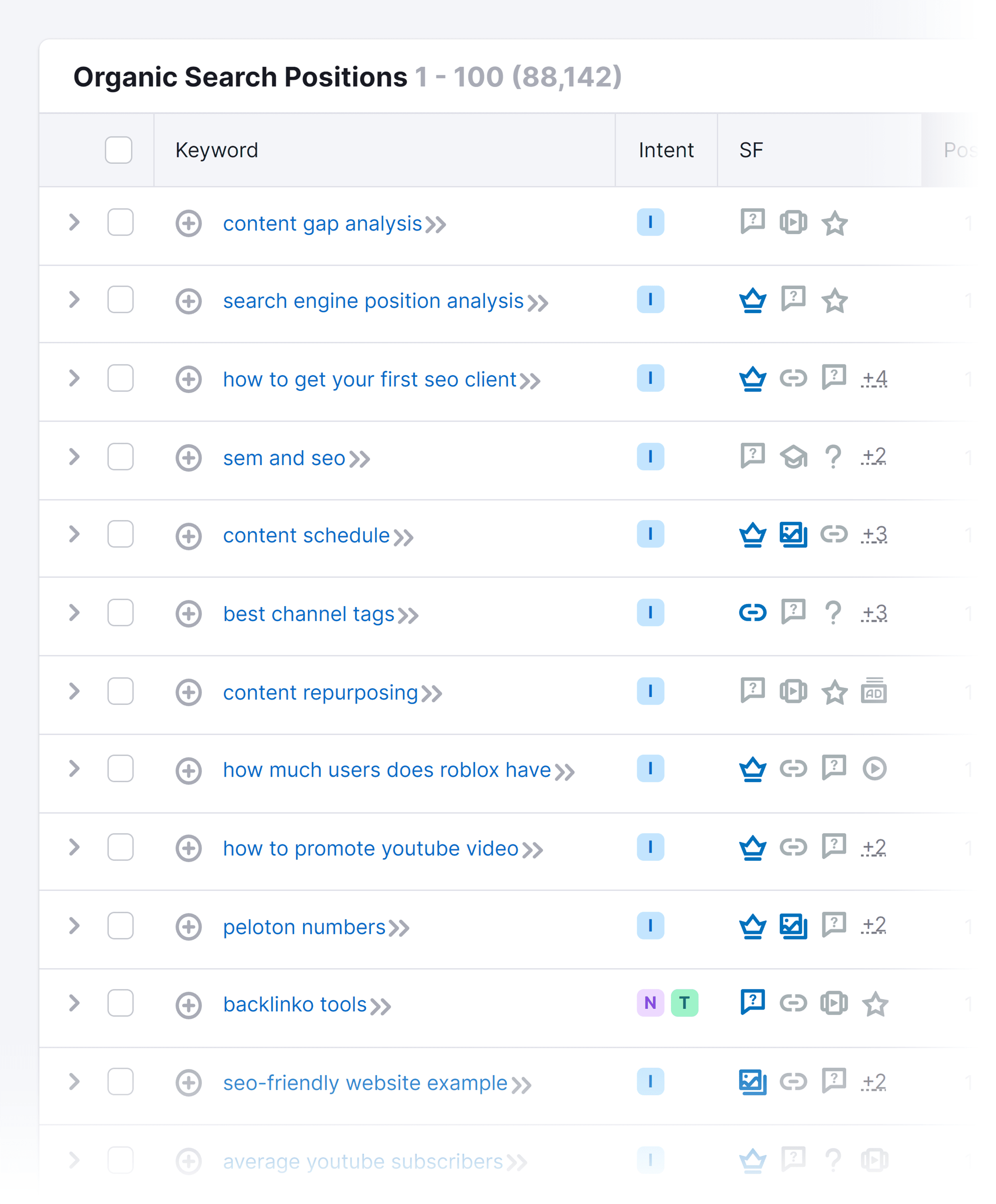
This page alone will usually give you a handful of solid keywords.
But if you want more ideas, go back to the “Organic Research” overview and check out the “Competitors” in the menu bar.
And you’ll see that site’s first-page competition:
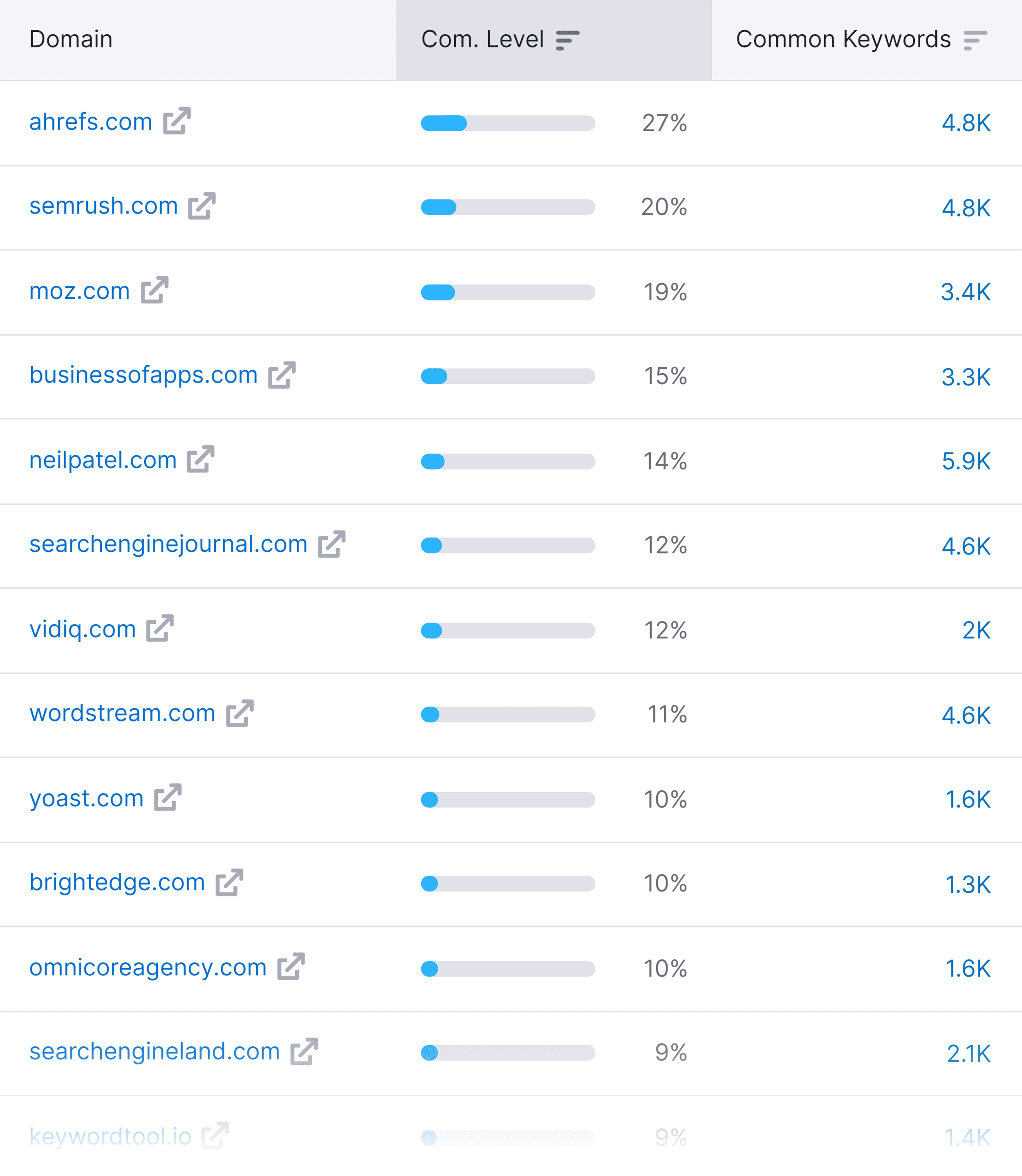
When you click on one of THOSE results, you can see the exact search queries they’re ranking for.
There will be some overlap from what you just saw, but you’ll also (usually) dig up some real gems.
You can also start your Semrush search with a keyword instead of a competitor’s site:

Semrush will show you a “Phrase match report”, which is a list of long-tail keywords that include the keyword you entered:
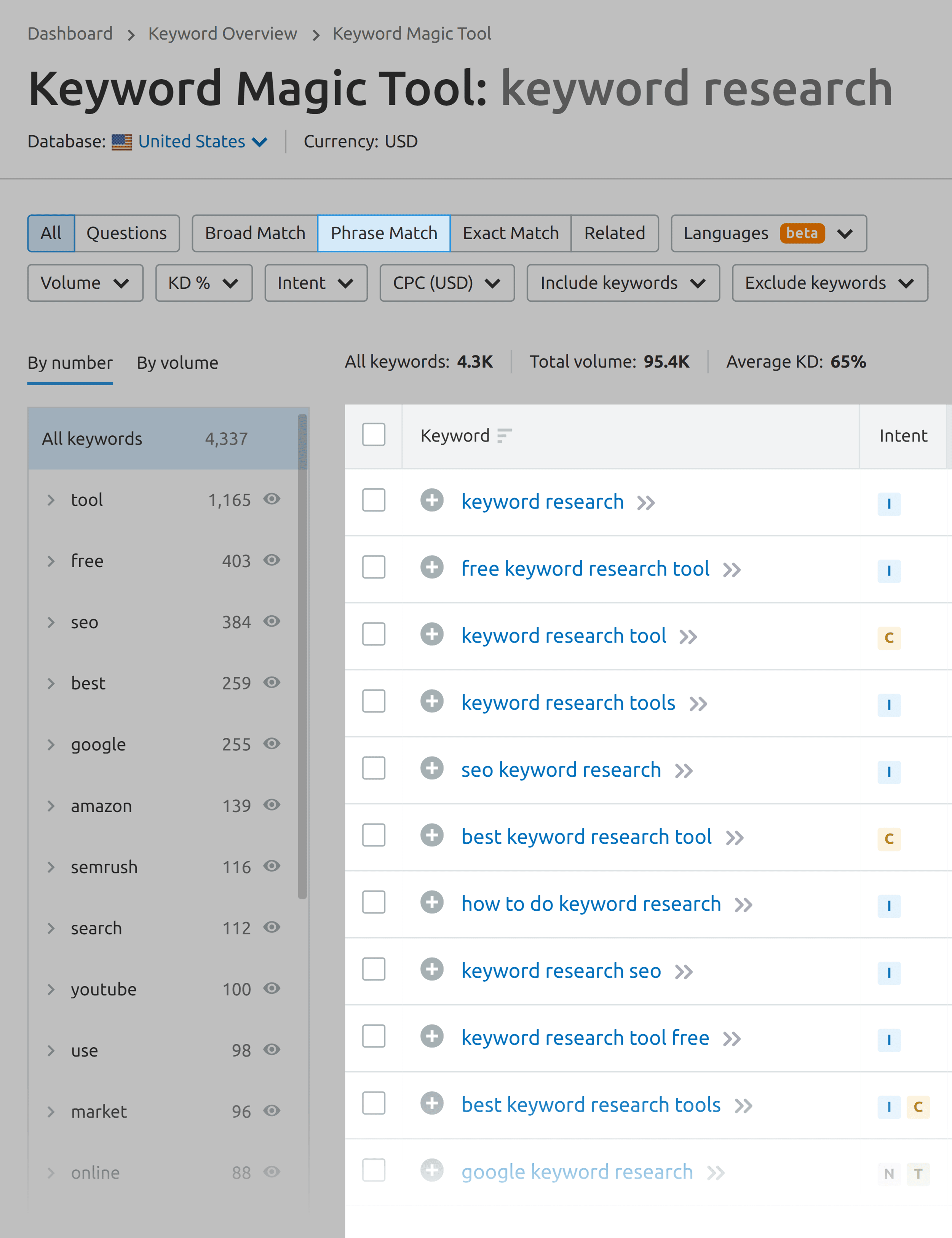
This is really helpful for finding long-tail variations of Head and Body Keywords.
For example, if you wanted to rank for the keyword “weight loss”, you’ll quickly find that it’s simply too competitive.
But Semrush will show you long-tail variations, like the “weight loss calculator”, that are MUCH easier to rank for:
Keyword research is vital for growing traffic to your site. It helps you write the perfect content to increase your organic search traffic.
The challenge is that finding the right keyword research tool can be tricky, especially if you’re fairly new to SEO (Search Engine Optimization).
In this article, we’ll share the very best keyword research tools that experts use to grow their website traffic.

What is a Keyword Research Tool?
A keyword research tool helps you find topic ideas that people are searching for on search engines like Google, Bing, Amazon, etc.
This helps you find content ideas that your customers are looking for. You can then plan your content strategy to cover those topics in your blog posts and landing pages.
Keyword research tools also help you see both seed keywords and long-tail keywords where your competitors are ranking on the top. You can then improve your content to target those keywords and steal their traffic.
Editor’s Note: We recommend using the All in One SEO plugin for WordPress along with one of the keyword research tools below for maximum ranking improvements.
That being said, let’s take a look at the best keyword research tools for SEO that you can use.
1. SEMrush

SEMrush is a complete SEO tool suite to carry out keyword research and improve your SEO rankings.
Using the Keyword Overview tool, you can type in a keyword and get a full picture of everything you need to know. This includes how many people search for the keyword (monthly search volume), whether it’s growing in popularity or becoming less popular (the Trend), and much more.
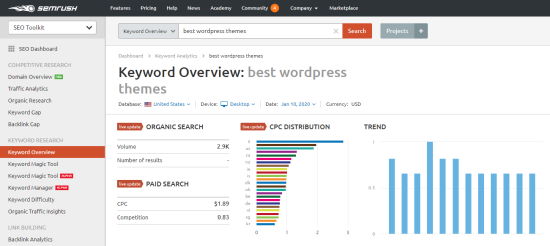
After scrolling down, you can also see a handy list of other similar keywords you might want to use, along with a list of organic search results, so you can find out where your competitors rank for the keyword. You can also check out Google Ads that use that keyword in PPC advertising (pay-per-click ads).
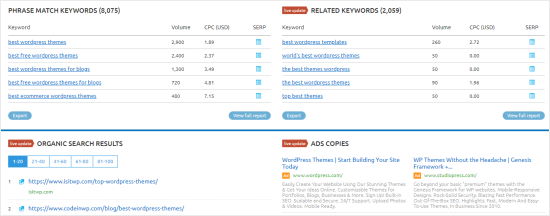
You can also type in any competitor’s website in the Domain Overview to see their organic search terms, keyword data, and other organic traffic metrics.
If you click on the Organic Research tab, you’ll be able to see relevant keywords, your competitor’s search engine ranking positions (serps), the traffic value (cpc), and more.

SEMRush also integrates with the All in One SEO plugin to help you find additional related keywords right from WordPress.
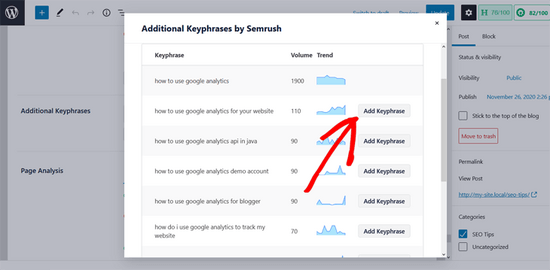
It even shows the search volumes and trends straight from the screen. Then, you can add the keywords to your content with the click of a button.
All the top marketers in the world rate SEMRush as the #1 keyword research tool. Their full suite of tools can help you with content marketing, digital marketing, social media, and more.
2. AnswerThePublic

AnswerThePublic works a bit differently from most other keyword research tools. They present keywords in a nice visual format although you can also see them in a list or download a .csv file of results.
If you’re just getting started with SEO and keyword research, then this is a great tool to try, because you don’t even need to create an account to use it. Just type in your keyword and take a look at what comes up.
